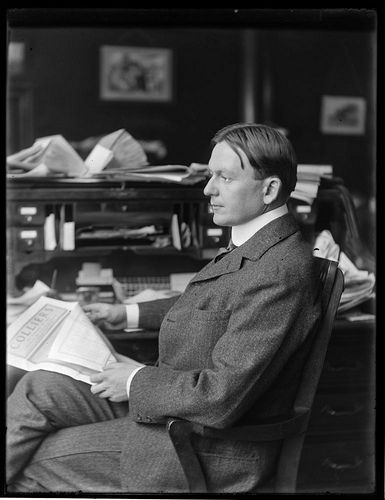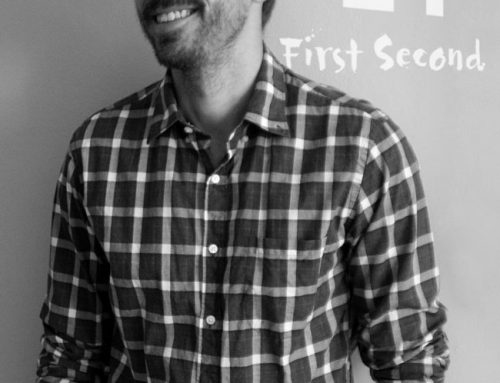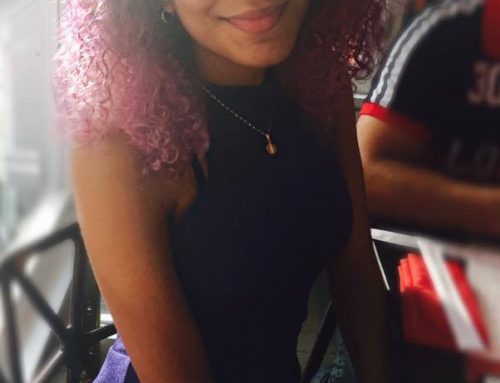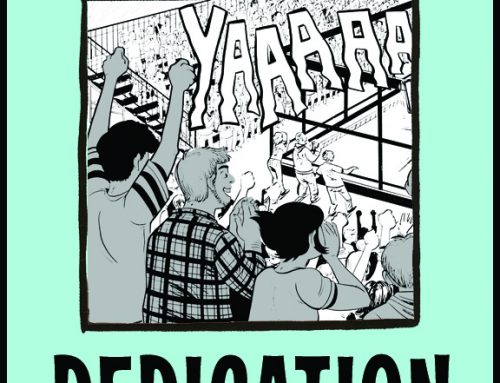test heading
test heading
(This photo was taken from the George Eastman House. Surprisingly, the person in the photo is actually a publisher — Robert Collier! Probably, however, you would not like to have him as your publisher as he is — sadly — now deceased. Zombie!Publisher?)
There is a terrible publishing moebius loop that new authors frequently find themselves caught in.
Many publishers don’t take unsolicited submissions. That means that to get published by them, you have to have an agent.
Many agents don’t take on authors as clients without the author having at least one book published, or at least a deal for a book. That means to get an agent, you already have to be published.
(It’s like the getting-your-first-job dilemma! You have to have past experience to get a job . . . but you have to get a job first to have past experience. Augh!)
So what do you do if you’re an author and you want to get published?
First, let’s have some perspective.
I don’t know a lot of editors who personally edit more than twenty books a year. If an editor has been in the business for over ten years, they probably have that twenty books/year mostly filled by authors that they’ve been working with for the past decade, with only one or two slots per year open for new authors. To get in one of those slots, having a lot of visibility is required — either having an agent, having a book deal already, or winning an art/writing competition, being virally popular online, etc. (We recommend you read this useful post by Maggie Stiefvater about this aspect of publishing.)
If you’re not that award-winning, agent-having person, here are four things you can do to increase your chances of getting a publishing deal.
The first thing to realize here is that getting a book deal takes some effort, just like getting a job does. Would you expect a job in marine biology just because you got a degree in it? Maybe first you’d have to get an internship, do some volunteer work, do some temp work, etc. — you’d have to learn about the field and gain some experience and connections. The same thing is true in publishing — you don’t just get a book deal because your work is wonderful; you get a book deal because your work is wonderful and you know how to promote yourself and who to talk to about your work.
Meet people who work in publishing.
Meeting people who work in publishing sometimes takes some doing, but it’s typically possible.
If you live in the New York area, you’re set! It is full of people who work in publishing; just show up at some book events and talk to the authors and publishers you meet about what their jobs are like and what your hopes are.
If you’re not in New York City, you’re by no means out of luck. Though you may not be in the position of meeting someone who works in publishing every time you walk down the street, your area probably has some libraries, some bookstores, and some local authors. Reach out to those people and befriend them. Become a regular patron of the local library and shop at your local bookstore. When you become friendly with these librarians and booksellers, talk about your career hopes and ask if they have advice. Speaking as a publishing person, we do get submissions sent to us by librarians and booksellers we know who have had good work come their way. We think it’s super when that happens!
Write to or e-mail your local authors and ask them if they have time for an informational interview about how how their career happened. Most authors we know are very nice and they want to encourage aspiring authors. That’s you!
You should also be aware of any larger publishing-related events that are happening in your area. The Society of Children’s Book Writers and Illustrators exists just about everywhere, and they’re basically a ‘how-to-get-published’ for kids books authors; they have regular meetings and conferences. There are also a number of other writer’s conferences around the United States; you can reach out to them as well. Check in with the Creative Writing/MFA program at your local university — maybe the professors there have classes that’d be helpful to you (and connections that would be helpful to you). There’s probably some kind of book festival in your state — you should check that out and see what kind of authors and publishers you can meet at that. And there are mystery and science fiction and comics conferences all over the place all the time. Even if some of these events, stores, or libraries aren’t in your backyard, it’s worth driving a few hours to make these connections — this is your career you’re talking about, after all! Putting in some effort is probably necessary to make it work out the way you’d like.
Also, there’s the internet! It’s full of publishing people. You can interact with it.
Basically, this comes out to: do as much as possible to integrate yourself into the literary landscape of the area you live in.
Do research about publishing.
Everyone hates form letters. I myself hate form letters.
So how do you think an editor — or an agent — feels if they, the person who you are expecting to commit to dedicating the next quarter-century of their career to working with, gets a letter from you headed, ‘Dear Sir or Madam,’ indicating that you don’t know the first thing about them, what kind of books they edit, or even what their name is?
There are a lot of easy resources about the publishing industry that any aspiring author should spend time reading — Publisher’s Weekly, Shelf Awareness, Media Bistro, and Publisher’s Lunch all provide information about editors, authors, and publishing deals. If you’re interested in becoming a published author, you should take a look at those websites and subscribe to those e-newsletters, because the best thing you can possibly do for yourself is get daily e-newsletters about the publishing industry and read them all until you have a clear familiarity with who all the publishers are and who the editors who work for them are.
Finding the right agent and editor for your book is a difficult process. You have to find someone with the same areas of interest and the same style, likes and dislikes as you — it’s like finding the perfect book, the one you always want to re-read. Those books only come around once in a while — and it’s the same thing with agents and editors. You should set high standards for the agents and editors you work with and research them before you get in touch — do you like the books they’ve agented and edited? Have you talked to other authors of theirs and have they had good things to say about their working experience? Do you personally like them and want to trust them with the next decade of your career?
That isn’t an exaggeration — that is literally what you’re putting in the hands of your agent and editor when you sign up with them. (This is also what your agent and editor are taking on, so think about that when you’re composing your introductory letter to them, too — you have to convince them that you’re a person they want to start a long-term professional relationship with.) Doing your research first means that you’ll be e-mailing the agent or publisher whose background you’ve researched, who you’re following on twitter and whose blog you’ve been reading, to say: you are the one.
Accept that it might take some time.
Is being an author your dream job? That’s wonderful!
Sometimes it takes time for dream jobs to become a reality, even if you’re the perfect person for them. Publishing is not one of those industries that can afford to give money to every person who comes by with a proposal that has potential — we, for example, have rejected perfectly good books because ‘we have two other books dealing with this subject that we’re already publishing this year.’
Waiting is almost everyone’s least favorite thing (it’s certainly mine, aside from sharks), but doing freelance work, building a portfolio, constructing a presence on the literary scene, making connections with authors and teachers and librarians — those are all invaluable things for any author-to-be, and they all take some time to do. In many cases, it might be years before you find the perfect idea and the perfect editor to match it with.
In the meantime, publish online, self-publish, publish with small presses, print your work as zines or mini-comics, and practice not becoming a cauldron of resentment because no one has recognized your genius. This is one of those careers that takes time to build; it’s important to keep a positive attitude towards publishers and the publishing industry even if they’re not publishing you. In two years when a publisher offers you a book deal, probably you don’t want your first response to be, ‘Why didn’t you offer me this deal two years earlier? I hate you and everything you stand for!’
We recommend here the positive-attitude-inducing strategy of frequently reading excellent books (also an excellent way to keep up with the industry).
Write the best book you can, then write the best pitch you can. Send it to the people in publishing who you think would be the best people to agent or publish it.
First Second doesn’t take unsolicited submissions.
What does that mean?
It means that we don’t guarantee that we’ll read every submission that comes in, or get back to the authors who send them to us. It doesn’t mean that we toss every unsolicited submission we get into the garbage — it means that you may send something to us and then never hear from us again because we looked at it and it didn’t fit in with our list and then we didn’t have time to get back to you.
There are a lot of other publishers who have similar systems.
But if someone sends us a submission and they’re recommended by their local bookstore, who we know — if they follow us on twitter and comment on our facebook page frequently enough so that we recognize their name — if they’re recommended by their local librarian, who we know — if they’re recommended by an author we know who taught them creative writing or just is a fan of them and their work — if they’ve had short fiction or mini-comics or anthology work published that we’ve heard about or seen — if we met them at a conference we went to — we are just about 100% likely to open that submission and read it and get back to that author (even if it’s to say, ‘this book isn’t for us’).
If a publisher gets an amazing submission in and the project doesn’t have an agent, it may take some time to uncover it, read it, and get back, but no one is going to say, ‘this project doesn’t have an agent, but it’s amazing — we can’t possibly publish it.’ At many publishers, those amazing unsolicited submissions get buried in the pile of stuff that comes in (I think I got four submissions today, and that’s just stuff that came directly to me — and I’m not even an editor). That’s where those industry connections you’ve been making come in — getting your submission a place at the top of that pile.
If your submission is really good, there will be a publisher who wants to publish it, and an agent who wants to represent you and your work.
So in conclusion — we recognize that this publishing moebius-loop of almost-unending misery is both confusing and frustrating. We’re sorry about that. But for first-time authors, unfortunately, there’s often not much you can do but ride it out — and start trying to crack the mysteries of the industry in the meantime.
(thanks to Joey Phelps for the post subject suggestion.)






So, what do I do if I’ve been approached by a publisher – a reputable one – with a firm offer (that is also a good one) and I have no agent. Since I was happily doing self-pub, I hadn’t even thought about yet. How do I actually find an agent?
I have been working on my book for a while. The idea and concept I think are pretty happening. As I was writing tonight, I took a mental break and looked up via google.”How to get your first publishing deal.” To my benefit this post popped up. A much needed, relevant and required read for me and where I am in this process currently. Thank you for your time effort and energy put in on this article. The advice and professional insight was just what the Dr ordered. Maybe I can make you one of my connections.
I love these blog posts. They’re so informative and really help clear up the mysteries of the publishing world. As someone looking to “break in”, it nice to know there are so many ways to start meeting people who work in the literary field.I can’t wait to start finding some local book stores and events when I move to New York in June!
I loved this fantastic post. I have to say, even though it was a rejection letter, the response I got from First Second on my graphic novel recently was really awesome. I appreciated it greatly and I walked away encouraged to keep working hard. Thanks for all of these great posts!